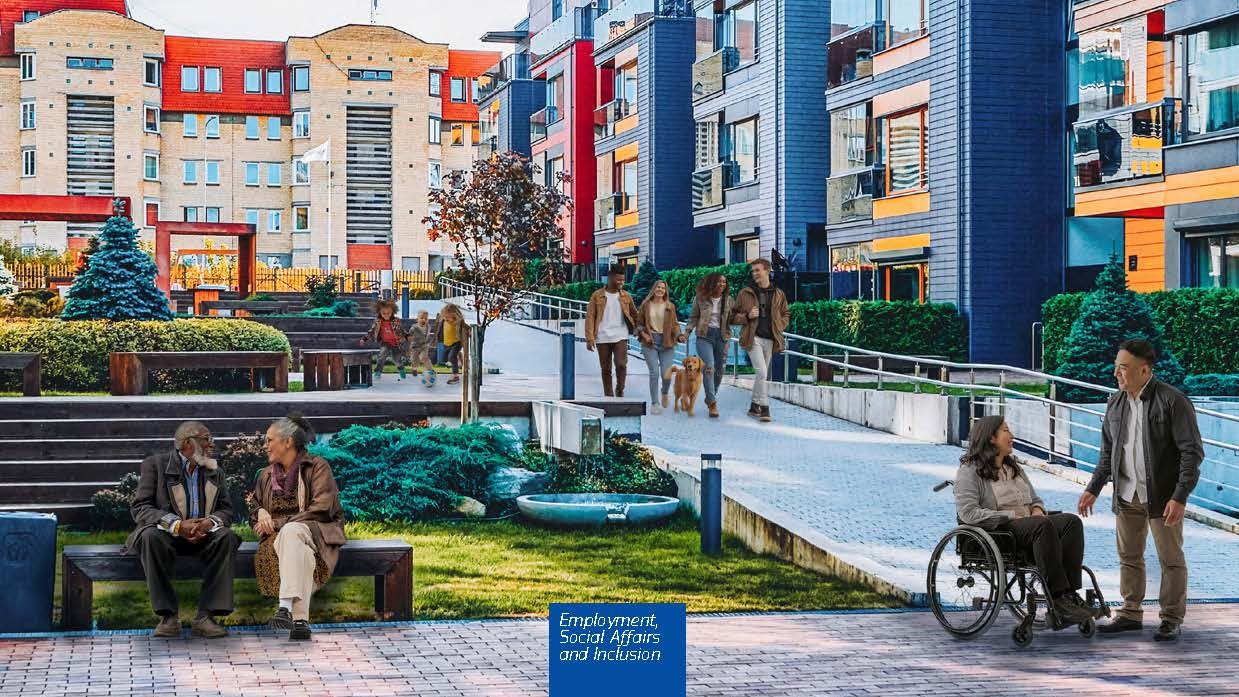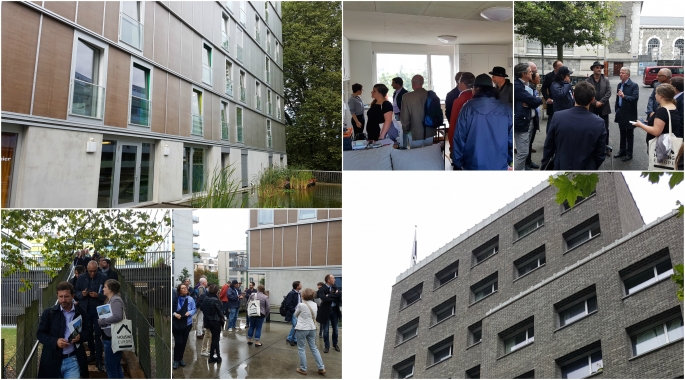Investment in Affordable & Social Housing Solutions: Reaching the “Locked Out” in Europe

The document titled “Investment in Affordable Social Housing Solutions: Reaching the Locked Out in Europe” addresses the urgent need for affordable housing across Europe, particularly for vulnerable populations who are often excluded from the housing market. It highlights the growing housing crisis exacerbated by economic disparities, rising costs, and insufficient public investment, focusing on strategies to enhance access to quality and affordable housing.
Overview of the Housing Crisis
Europe is facing a significant housing crisis characterized by a shortage of affordable and adequate housing options. Many low- and middle-income households are increasingly priced out of the market due to rising rental costs and property prices. The report emphasizes that this crisis affects not only marginalized groups but also middle-income families who find it challenging to secure decent housing.
Key Challenges
The document identifies several challenges contributing to the housing crisis:
- Economic Inequality: There is a widening gap between income levels and housing costs, making it difficult for many families to afford suitable living conditions. This economic disparity is particularly pronounced in urban areas where demand for housing is high.
- Insufficient Public Investment: Many European governments have reduced funding for social housing initiatives over the years, leading to a decline in available affordable units. This trend has resulted in increased reliance on private markets, which often prioritize profit over accessibility.
- Regulatory Barriers: Complex regulations and bureaucratic processes can hinder the development of new affordable housing projects. These barriers often delay construction and increase costs, further limiting the supply of affordable options.
- Stigmatization of Social Housing: Social housing is frequently viewed negatively, leading to social exclusion of residents and reluctance among policymakers to invest in these solutions. This stigma can prevent effective integration of social housing into broader urban planning.
Strategic Recommendations
To address these challenges, the document proposes several strategic recommendations aimed at enhancing investment in affordable social housing:
1. Increase Public Investment
The report advocates for increased public funding dedicated to social housing projects. This includes utilizing European Union funds more effectively and encouraging member states to allocate a portion of their budgets specifically for affordable housing initiatives.
2. Innovative Financing Models
Developing innovative financing mechanisms is crucial for attracting investment into affordable housing. The report suggests exploring public-private partnerships (PPPs) that can leverage private sector resources while ensuring that projects remain accessible to low-income households.
3. Streamline Regulatory Processes
Simplifying regulatory frameworks can facilitate faster development of affordable housing projects. By reducing bureaucratic hurdles, governments can encourage more developers to engage in building affordable units.
4. Promote Community-Led Initiatives
Encouraging community involvement in the planning and development process can lead to more tailored solutions that meet local needs. Community-led initiatives foster a sense of ownership among residents and can improve the quality and sustainability of housing developments.
5. Enhance Awareness and Education
Raising awareness about the importance of social housing and its benefits can help combat stigma and promote acceptance within communities. Educational campaigns can inform both policymakers and the public about the value of inclusive housing policies.
Conclusion
The document concludes that addressing the affordable housing crisis in Europe requires a multifaceted approach that combines increased public investment, innovative financing models, streamlined regulations, community engagement, and enhanced awareness. By implementing these strategies, European countries can work towards creating inclusive urban environments where all citizens have access to quality and affordable housing.In summary, “Investment in Affordable Social Housing Solutions” emphasizes the urgent need for comprehensive strategies to tackle the growing housing crisis faced by vulnerable populations across Europe. The recommendations provided aim to foster collaboration between public authorities, private investors, and communities to ensure that affordable housing becomes a fundamental component of urban development policies moving forward.

Further reading: Roma access to quality and affordable housing in Bulgaria
Home – Affordable Housing Initiative European Partnership shape-affordablehousing
Affordable and decent housing solutions – European Policy Centre epc
